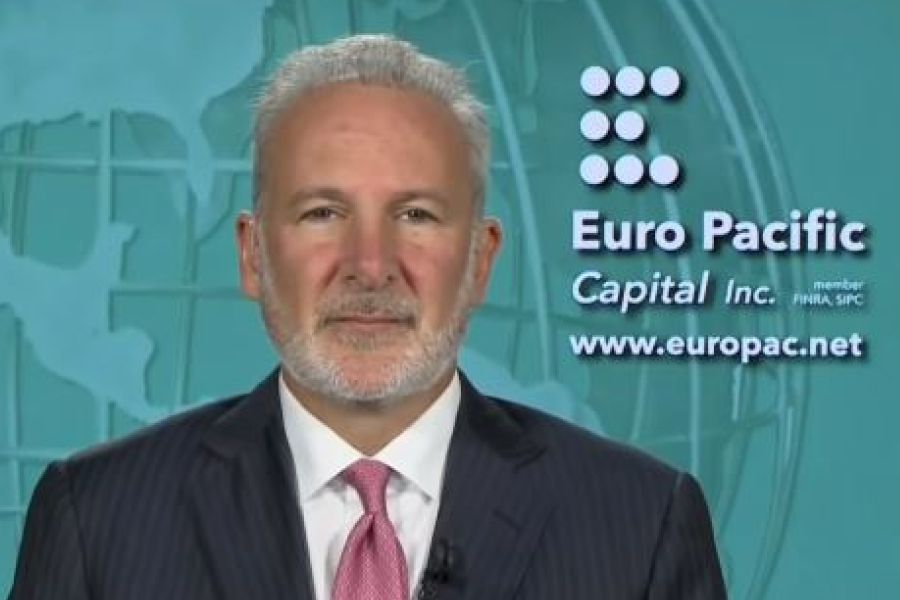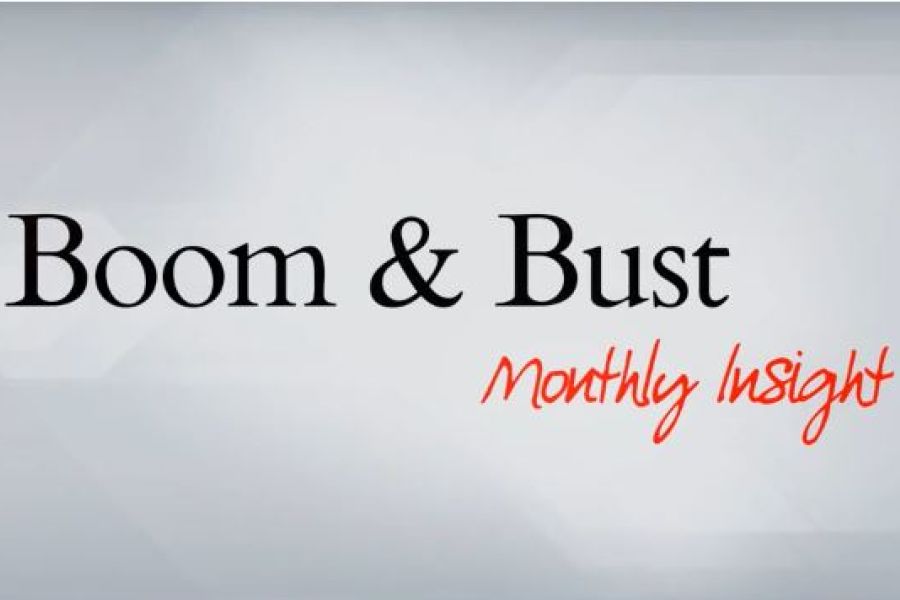As posted on the Peak Prosperity.com and the Chris Martenson's Peak Prosperity YouTube Channel Background The Crash Course has provided millions of viewers with the context for the massive changes now underway, as economic growth as we've known it is ending due to depleting resources. But it also offers real hope. Those individuals who take informed action today, while we still have time, can lower their exposure to these coming trends -- and even discover a better way of life in the process. In this Blog, I am presenting the 27 (inclusive of the introduction) installments of The Crash Course, one per week. Previous installments of "The Crash Course" can be found here: Blog (#311) Introducing "The Crash Course" Blog (#314) Chapter 1: Three Beliefs Blog (#319) Chapter 2: "The Three 'Es'" Blog...

Peter Schiff appears on RT on 10/16/18 to discuss the need to reduce government spending. Peter explains that people overlook the increase in the National Debt in that, although the official Budget Deficit is $780B, the National Debt increased by $1.2T during the same time period. That, Peter goes on to explain, is because a lot of what the government is borrowing, it doesn't count as part of the official budget . . . "so it actually borrows about 60% more than it is pretending to borrow". Peter Schiff is an American stock broker, financial commentator, and radio personality. He is CEO and chief global strategist of Euro Pacific Capital Inc., a broker-dealer based in Westport, Connecticut. He is also the author of six books published by John Wiley & Sons. His book, Crash Proof 2.0, appeared on...
If you’re age 70½ or older, you can make direct contributions — up to $100,000 annually — from your IRA to qualified charitable organizations without owing any income tax on the distributions. This break may be especially beneficial now because of Tax Cuts and Jobs Act (TCJA) changes that affect who can benefit from the itemized deduction for charitable donations. Counts toward your RMD A charitable IRA rollover can be used to satisfy required minimum distributions (RMDs). You must begin to take annual RMDs from your traditional IRAs in the year you reach age 70½. If you don’t comply, you can owe a penalty equal to 50% of the amount you should have withdrawn but didn’t. (Deferral is allowed for the initial year, but you’ll have to...
As posted to the David Stockman YouTube Channel on 10/22/18 David Stockman appears on Fox Business Network's "Varney & Co." to discuss the impact of the Federal Reserve's decision to drain $600B out of the bond market and, in turn, the economy. Stockman explains that the Fed will accomplish this by allowing their balance sheet, which reached $4.5T, to shrink by not reinvesting when Treasury Bonds mature . . . which is the same thing as selling bonds. Stockman goes on to say that adding $600B of debt to the $1.2T budget deficit that we already have for this year, means that $1.8T of debt is looking for a home in the bond market. It will find a home, but not at 3.2% yield on the 10...
As posted on the Peak Prosperity.com and the Chris Martenson's Peak Prosperity YouTube Channel Background The Crash Course has provided millions of viewers with the context for the massive changes now underway, as economic growth as we've known it is ending due to depleting resources. But it also offers real hope. Those individuals who take informed action today, while we still have time, can lower their exposure to these coming trends -- and even discover a better way of life in the process. In this Blog, I am presenting the 27 (inclusive of the introduction) installments of The Crash Course, one per week. Previous installments of "The Crash Course" can be found here: Blog (#311) Introducing "The Crash Course" Blog (#314) Chapter 1: Three Beliefs Blog (#319) Chapter 2: "The Three 'Es'" Blog...
We’re all aware that the Fed is raising short-term rates. But, as Rodney Johnson, co-editor of Boom & Bust, points out in this month’s Insight video, they’re doing something more important than that . . . (This is not an embedded clip. Ctrl+Click picture above to link to clip location) Rodney Johnson is the co-founder of Dent Research, an economic forecasting and investment research firm and publisher that works diligently to provide clients with the proprietary economic knowledge needed to accurately forecast what lies ahead in our economy so that they can take the necessary and appropriate action to ensure prosperity in their business, investment and financial affairs....
As we approach the end of the year, it’s a good idea to review your business’s expenses for deductibility. At the same time, consider whether your business would benefit from accelerating certain expenses into this year. Be sure to evaluate the impact of the Tax Cuts and Jobs Act (TCJA), which reduces or eliminates many deductions. In some cases, it may be necessary or desirable to change your expense and reimbursement policies. What’s deductible, anyway? There’s no master list of deductible business expenses in the Internal Revenue Code (IRC). Although some deductions are expressly authorized or excluded, most are governed by the general rule of IRC Sec. 162, which permits businesses to deduct their “ordinary and necessary” expenses. An ordinary expense is one that is common and accepted in...
In today’s tightening job market, to attract and retain the best employees, small businesses need to offer not only competitive pay, but also appealing fringe benefits. Benefits that are tax-free are especially attractive to employees. Let’s take a quick look at some popular options. INSURANCE Businesses can provide their employees with various types of insurance on a tax-free basis. Here are some of the most common: Health insurance. If you maintain a health care plan for employees, coverage under the plan isn’t taxable to them. Employee contributions are excluded from income if pre-tax coverage is elected under a cafeteria plan. Otherwise, such amounts are included in their wages, but may be deductible on a limited basis as an itemized deduction. Disability insurance. Your premium payments aren’t included in employees’...
- 1
- 2
- 3
- 4
- 5
- 6
- 7
- 8
- 9
- 10
- 11
- 12
- 13
- 14
- 15
- 16
- 17
- 18
- 19
- 20
- 21
- 22
- 23
- 24
- 25
- 26
- 27
- 28
- 29
- 30
- 31
- 32
- 33
- 34
- 35
- 36
- 37
- 38
- 39
- 40
- 41
- 42
- 43
- 44
- 45
- 46
- 47
- 48
- 49
- 50
- 51
- 52
- 53
- 54
- 55
- 56
- 57
- 58
- 59
- 60
- 61
- 62
- 63
- 64
- 65
- 66
- 67
- 68
- 69
- 70
- 71
- 72
- 73
- 74
- 75
- 76
- 77
- 78
- 79
- 80
- 81
- 82
- 83
- 84
- 85
- 86
- 87
- 88
- 89
- 90
- 91
- 92
- 93
- 94
- 95
- 96
- 97
- 98
- 99
- 100
- 101
- 102
- 103
- 104
- 105
- 106
- 107
- 108
- 109
- 110
- 111
- 112
- 113
- 114
- 115
- 116
- 117
- 118
- 119
- 120
- 121
- 122
- 123
- 124
- 125
- 126
- 127
- 128
- 129
- 130
- 131
- 132
- 133
- 134
- 135
- 136











